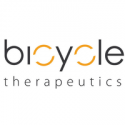NEW YORK, NY, USA (December 19, 2018) AzurRx BioPharma, Inc. (NASDAQ:AZRX) (“AzurRx” or the “Company”), a company specializing in the development of non-systemic, recombinant therapies for gastrointestinal diseases, today announced that it has initiated the Company's Phase II OPTION study to investigate MS1819-SD in cystic fibrosis (CF) patients with exocrine pancreatic insufficiency (EPI).
The Phase II multi-center study is designed to investigate the safety, tolerability and efficacy of MS1819-SD in a head-to-head comparison against the current porcine enzyme replacement therapy standard of care. Planned enrollment is expected to include approximately 30 CF patients, with study completion anticipated in 2019.
Key highlights of OPTION include:
Six-week non-inferiority, coefficient of fat absorption (CFA) primary endpoint comparing MS1819-SD to porcine enzyme replacement therapy in patients with exocrine pancreatic insufficiency due to cystic fibrosis; Cross-over study design leverages input from the U.S. Food and Drug Administration (FDA) and the CF community;Target enrollment of approximately 30 patients 18 years of age and older; and
Initial results expected during 2019.
“We are delighted to serve as the first site initiated in the OPTION study,” commented Steven R. Boas, M.D., FAAP, FACCP, President and CEO, The Cystic Fibrosis Institute. “I believe that MS1819-SD has the potential to improve the lives of patients by reducing their pill burden, which can be as high as 40 digestive enzyme pills per day. Based on my 27 years of experience in treating CF patients, chronic digestive issues are often cited as one of their top concerns, which is also supported by the literature. MS1819-SD may offer a promising solution for this important unmet need.”
Thijs Spoor, Chief Executive Officer of AzurRx, added, “The initiation of the OPTION study of MS1819-SD in patients with CF is a significant milestone for AzurRx and follows our successful Phase II EPI trial in patients with chronic pancreatitis, which demonstrated both safety and statistically significant efficacy. We look forward to this trial and to demonstrating it can make a meaningful difference for patients.”
Dr. James Pennington, Chief Medical Officer of AzurRx, added, “We are very appreciative of the input provided by the FDA in designing our cross-over study and the positive feedback from the Cystic Fibrosis Foundation’s Therapeutics Development Network, which enables us to access its 89 accredited U.S. care centers.”
As recently announced, in a Phase II trial in the chronic pancreatitis setting, MS1819-SD showed a favorable safety profile with good tolerability. Additionally, a statistically significant (p=0.002) improvement in the coefficient of fat absorption of 21.8% was observed the highest studied dose (per protocol).
About OPTION
The OPTION trial is a Phase II, open-label, multicenter, 2x2 crossover study assessing the safety and efficacy of MS1819-SD versus porcine PERT given at the same dose that was being administered during the pre-study period. Approximately 30 evaluable patients will complete both crossover periods. The primary efficacy endpoint will be a comparison of CFAs after each of the two crossover periods.
About MS1819-SD
MS1819-SD, supplied as an oral non-systemic biologic capsule, is a recombinant enzyme that is derived from the yarrowia lipolytica lipase, and unlike the standard of care, does not contain any animal products.
About Exocrine Pancreatic Insufficiency:
EPI is a condition characterized by deficiency of the exocrine pancreatic enzymes, resulting in the inability to digest food properly, or maldigestion. The deficiency in this enzyme can be responsible for greasy diarrhea, fecal urge and weight loss.
There are approximately 90,000 patients in the U.S. with EPI caused by chronic pancreatitis according to the National Pancreas Foundation and more than 30,000 patients with EPI caused by cystic fibrosis according to the Cystic Fibrosis Foundation. Patients are currently treated with porcine pancreatic enzyme replacement pills.
AzurRx BioPharma, Inc.
AzurRx BioPharma, Inc. (NASDAQ:AZRX) is engaged in the research and development of non-systemic biologics for the treatment of patients with gastrointestinal disorders. MS1819-SD recombinant lipase for EPI is the Company's lead development program, and additional early stage research is being conducted for the prevention of hospital-acquired infections. The Company is headquartered in Brooklyn, NY, with scientific operations based in Langlade, France. Additional information on the Company can be found at www.azurrx.com
SOURCE: AzurRx BioPharma








